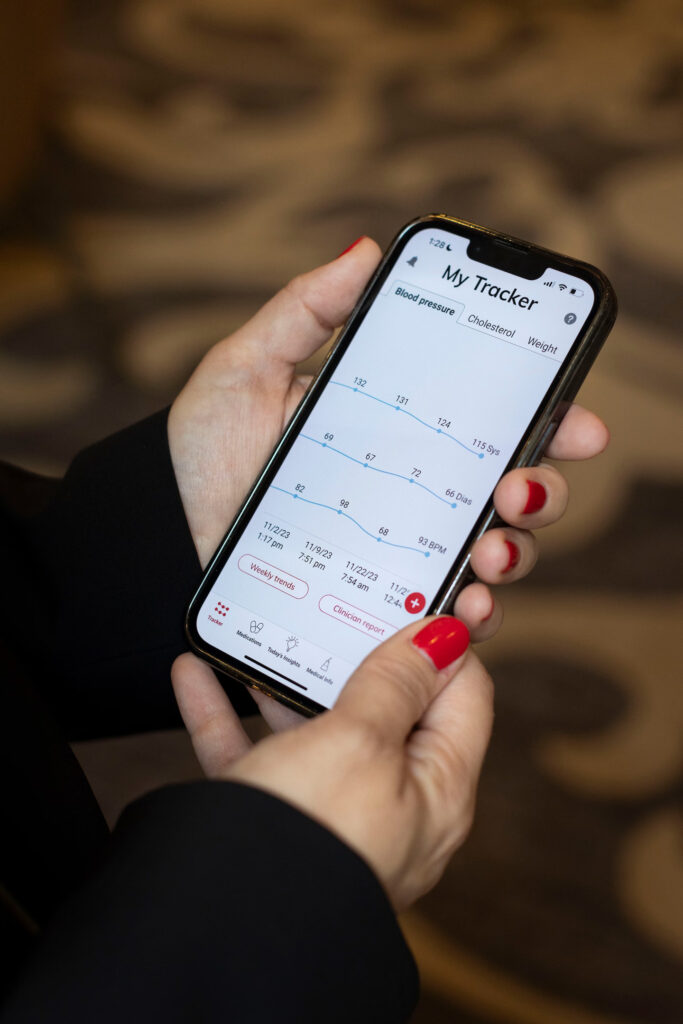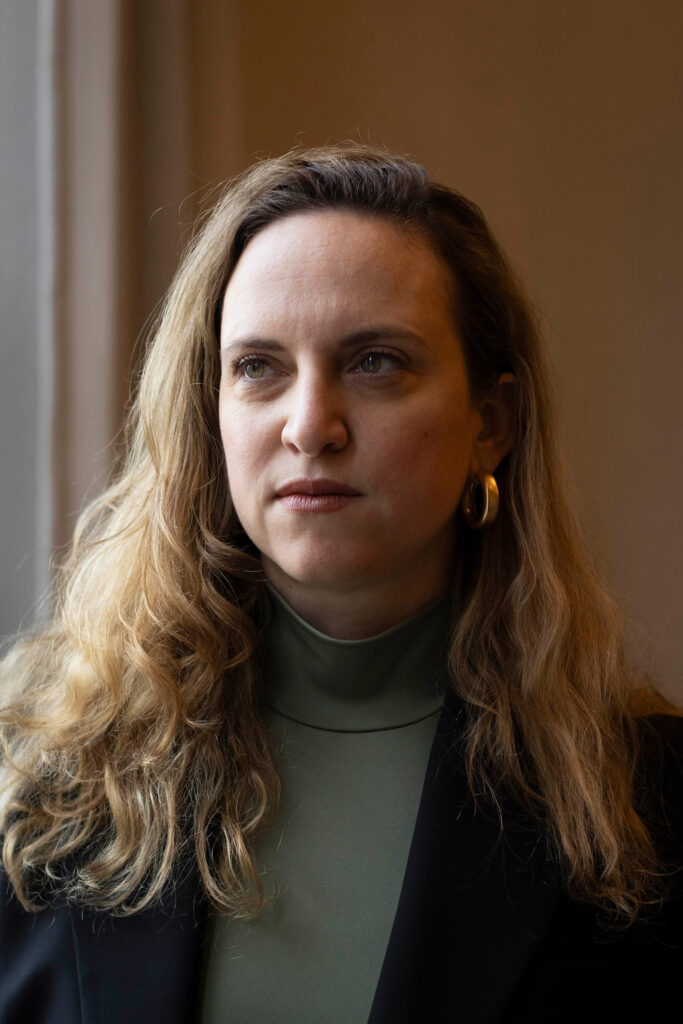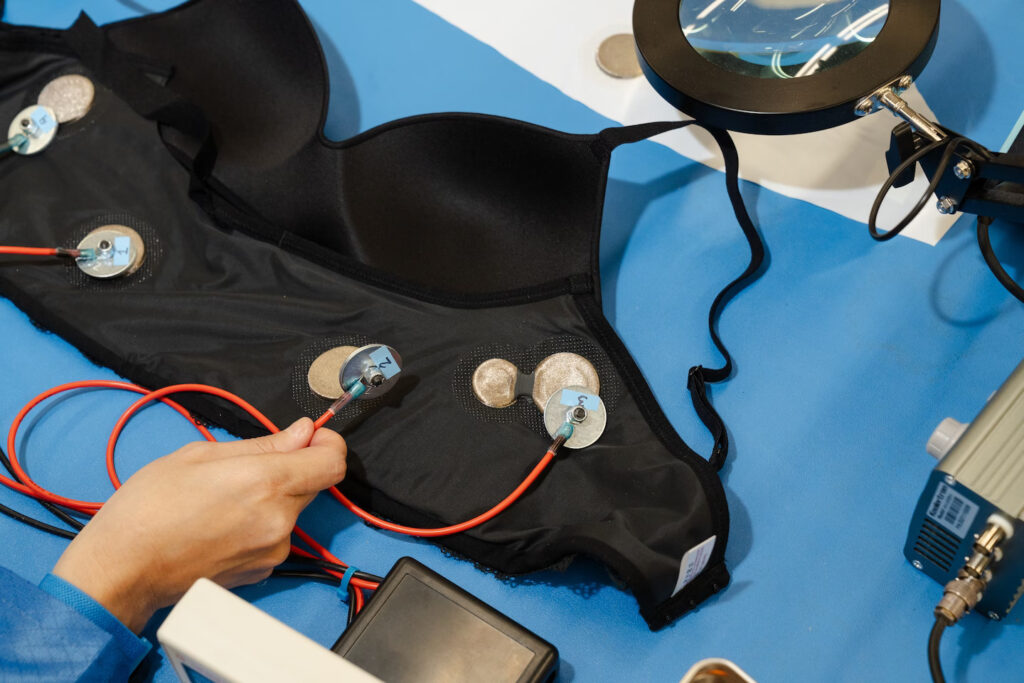The encouraging news is that lifestyle changes and early treatment can prevent or manage most cases of coronary artery disease. However, the healthcare system has fallen short in identifying those at risk, particularly women and people of color.
In 2021, heart disease claimed the lives of 310,661 women, accounting for about 1 in 5 female deaths. Regrettably, over half of women cannot recognize heart disease risks and remain unaware of their susceptibility. Adding to the challenge, diagnostic tests and treatment guidelines primarily hinge on the disease’s progression in men, leading to suboptimal treatment for women.
Dr. Michos emphasized that women benefit as much as men from lipid-lowering drugs. Despite this, there is a consistent under-prescription of these therapies across the board. Even women who have experienced heart attacks or strokes are less likely to receive essential medications and interventions.

The Hello Heart app tracks data such as blood pressure, irregular heartbeats, weight and activity level. (Christiana Botic for The Washington Post)

Maayan Cohen, founder of Hello Heart. (Christiana Botic for The Washington Post)
Empowering women with solutions tailored to their needs, FemTech companies are making significant strides. More than 60 percent of these companies have emerged in the last five years, with over 85 percent being led by women, according to Brittany Barreto, founder of FemHealth Insights and host of the FemTech Focus podcast.
Women in STEM science are actively working on and funding health solutions specifically designed for women, creating a dynamic landscape in the FemTech sector. Maayan Cohen, from Hello Heart, likens the current interest from investors to the revelation in the 1950s that women constitute a vast, untapped market for advertisers. In the realm of digital health, venture capitalists are recognizing the substantial and potentially lucrative market they have yet to serve.
Although many FemTech companies are still awaiting regulatory approvals for their innovative devices, investors and analysts express optimism about the sector’s potential. A McKinsey report titled “The Dawn of the FemTech Revolution” highlights the accelerating dynamics, including increased public awareness, company formations, and surging funding.
One notable start-up, Bloomer Tech, founded by Alicia Chong Rodríguez, has introduced the Bloomer Bra—a daily undergarment redesigned to monitor heart, lung, hormone, and metabolism data. The aim is not only to enhance diagnostics and monitoring but also to expedite the collection of medical-grade data for developing new therapies and care models for women with heart disease. Chong Rodríguez and her team have patented flexible, washable circuits that transform clothing into devices, relaying comprehensive information to the wearer’s smartphone through a Bluetooth-enabled app, with the option to share this data with healthcare professionals.

Bloomer Tech co-founders Alicia Chong Rodríguez, left, and Aceil Halaby. (Sophie Park for The Washington Post)
Chong Rodríguez found her motivation for this work in the tragic heart attack that claimed the life of her grandmother, who shared her name. During her time as a graduate student in MIT’s computational cardiovascular research group, she observed a significant gap in medical decision-making data, noting that much of it was “basically missing women.” This absence stemmed from the exclusion of premenopausal women from clinical trials until 1993, a policy rooted in the aftermath of the thalidomide scandal. Researchers, concerned about potential adverse effects on women and their children, further reinforced this exclusion, viewing menstruation and pregnancy as complicating variables. Despite contemporary calls for inclusion in trials, women—especially those of color—continue to be underrepresented.
Chong Rodríguez emphasized the long-standing misconception that treated women as essentially small men, except for reproductive aspects. This oversimplification poses risks, making it challenging to recognize, diagnose, and treat women with heart disease due to gaps in understanding female physiology. Training artificial intelligence with limited data and variables could perpetuate these challenges.
Bloomer Health recently secured $1.9 million from the National Institutes of Health for a clinical study, a development that Chong Rodríguez believes will expedite the adoption of the device. She envisions that as more women use this medical device, a deeper understanding of female physiology will emerge. This understanding will pave the way for the development of female-specific digital biomarkers, offering improved methods for diagnosing and treating heart conditions that are unique, disproportionate, or different in women.

Bloomer Tech co-founder Alicia Chong Rodríguez tests a tech-augmented garment (TAG) bra. (Sophie Park for The Washington Post)
Kathy E. Magliato, a cardiothoracic surgeon and the inspiration behind a TV series about a female heart surgeon, transitioned into entrepreneurship due to frustration with the existing norms. Her health tech start-up, Cordex Systems, was born out of concern for the rising number of young women affected by heart disease. Recognizing the potential to prevent 80 percent of heart disease cases, Magliato, alongside her business partner bioengineer Michael Whitt, designed, patented, and tested a “smart” blood pressure cuff. This innovative device can detect early signs of arterial stiffening, a factor making women more susceptible to heart disease. The SmartCuff underwent testing with over 700 patients at Johns Hopkins Medicine, and Magliato is now raising funds for expanded testing sites and regulatory clearance.
In a parallel effort to improve women’s health outcomes, Maayan Cohen of Hello Heart focuses on education. The company launched a public campaign in 2023 with the slogan “If you feel something, say something” to raise awareness about the distinctive symptoms of heart attacks in women. Cohen aims to challenge misconceptions by providing real-time, sex-specific feedback to the 2 million members in Hello Heart’s digital coaching program. This program, accessible through employers or health plans, goes beyond monitoring blood pressure to inform users about irregular heartbeats, lab results, and the impacts of medications, weight, and physical activity. A 2021 study validated the approach, showing that 84 percent of those with high blood pressure not only reduced it but maintained lower levels for up to three years.
Cohen is committed to furthering these efforts, advocating for more funding for women’s heart research and enhanced clinician training around their symptoms. In a letter published in the New York Times Magazine, she rallied support from notable figures like Thrive Global CEO Arianna Huffington, NCAA volleyball star Asjia O’Neal, and former Food and Drug Administration commissioner Peggy Hamburg. The goal is to address longstanding gaps in women’s heart health research and clinical understanding.

